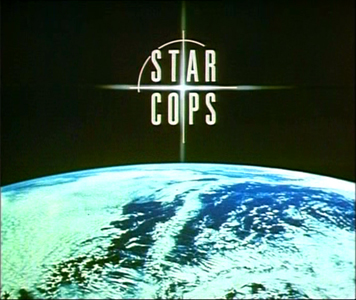Crime in Space
Currently, exploration of space is governed by the U.N. Outer Space Treaty of 1966 which covers scientific exploration and commercial exploitation of orbits and bodies in space. Over one hundred nations have signed it. It prohibits putting nuclear weapons in space, prevents individuals, companies or government from claiming astronomical bodies and territory on moons and planets and makes nations responsible for any damages caused by their space programs, their private space industry and/or their citizens involve in space activities.
When and if a significant number of human beings take up residence in space, the question of laws governing individuals and communities will arise and law enforcement and courts will be necessary. There was a good TV series called Star Cops in 1987 on British TV that dealt with police on the moon.
Astronauts are carefully vetted for psychological stability and the ability to follow rules closely. In part, their survival depends on it. As space tourism and industry evolve, more and more people will be traveling into space and the quality and universality of vetting will decline. There will need to be a legal framework of some sort to deal with misbehavior.
There is a Draft for A Convention on Manned Space Flight from 1991 that proposes a chain of command which makes the commander of a spacecraft responsible for the actions of the crew and mandates that the crew must answer to the commander and the director of spaceflight operations.
Aviation law is often consulted for ideas that may be applicable to space law. The Tokyo Convention of 1963 authorizes the pilot of an aircraft to take appropriate actions against any passengers who are being disruptive. While not a comprehensive framework for space law, the TC is a good start.
The International Space Station is governed by an intergovernmental agreement. Each nation that is participating in the crewing of the ISS has criminal jurisdiction over any of their nationals who are on the ISS. The ISS commander has ultimate authority over the whole crew regardless of nationality. There are provisions for chain of command, ground to space procedures and disciplinary measures. There is, as yet, no such thing as a space "jail" but some sort of incarceration facility will eventually be required.
It may be necessary to apprehend and immobilize people who commit crimes on spacecraft, space stations or stations on moon or planets. Given that there is hard vacuum outside spacecraft and space stations as well as stations on moons, some sort of non-lethal immobilizing weapon such as a dart gun would be preferred to a projectile weapon that could pierce a bulkhead or wall.
It will also be necessary to increase security provisions for life support systems and airlocks in case someone tries to sabotage life support or open an airlock. Biometrics will be preferable to code entry keypads because codes can be stolen. There will have to be increases security with respect to items being shipped into orbit to prevent smuggling of contraband including weapons and drugs.
Unfortunately, in any population of human beings there will always be some who will not follow the rules and could pose a threat to themselves and/or others. The expansion of the human race into space will not be exempt from this problem.
